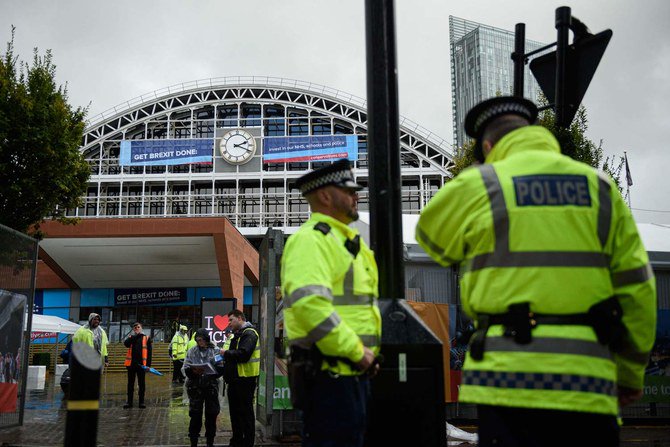
- ARAB NEWS
- 01 Jul 2025

Events in the UK illustrate how divisive language can be. Brexit has split the UK’s main political parties, indeed the whole country, down the middle. The fault line between remainers and leavers divides communities, even families. The wounds are deep — and language has the power to either rub salt in them, or help the healing process.
As British politics has become more divisive, so has language. Never was this more obvious than last week, when Parliament was recalled from a prorogation that the Supreme Court ruled had never taken place. Tempers flared, and language erupted for everyone to see, or rather hear. The Attorney General described Parliament as a disgrace, and castigated MPs for refusing to grant the government’s wish for a general election. Opposition parties will do that only after they have ensured that Prime Minister Boris Johnson complies with the law and asks the EU for an extension to the current Oct. 31 Brexit deadline, ruling out leaving without a withdrawal agreement.
Raw emotion was on display when MPs criticized Johnson’s use of terms such as “surrender” and “betrayal” to describe the law requiring him to ask for an extension. They pointed out that the Labour MP Jo Cox, who had argued for Britain to remain in the EU, had been murdered during the referendum campaign in 2016 by a right-wing extremist who shouted “Britain first” as he shot and stabbed her. Now they, too, were receiving death threats, the MPs said. Johnson dismissed the link as “humbug,” and uproar ensued.
The UK is not alone in the new harshness of its political discourse. In the US, too, politics is polarized by presidential tweets and opposition rebuttals. Extremist websites on the left and right incite hatred and violence. Right-wing white supremacists and radical groups on the left prey on the weak, the young and the vulnerable. Radicalization is the name of the game, and language — hate speech — is the instrument.
Right-wing white supremacists and radical groups on the left prey on the weak, the young and the vulnerable. Radicalization is the name of the game, and language — hate speech — is the instrument.
Politicians and others in positions of influence, whether world leaders or their political opponents, must be made aware of the example they set with the language they use — and the obvious rabble-rousers are not always the most pernicious. In his essay on politics and the English language, George Orwell argued that much political language was “designed to make lies sound truthful and murder respectable, and to give an appearance of solidity to pure wind.” Such language was deliberately vague and meaningless because it was meant to hide the truth rather than express it, he said. So we should always ask what speakers or writers mean by what they say, and we must not allow them to hide behind anodyne phrases.
Perhaps even more importantly nowadays, we must not allow politicians and others to use language to incite hatred. Once something is said or written, it cannot be unsaid or unwritten.
Language creates the atmosphere in which political discourse happens, and can inflame a situation or calm it down.
In other words, language matters — so let’s all be careful how we use it.